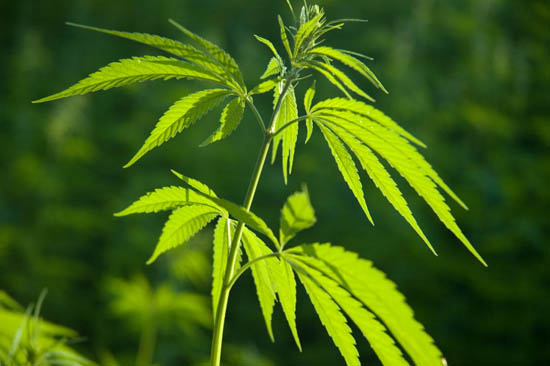Industrial hemp shows promise on a small scale
Industrial hemp shows promise on a small scale

A recent University of Kentucky College of Agriculture, Food and Environment study went beyond hope and hearsay and examined industrial hemp’s true potential as a viable crop in Kentucky.
Profitable opportunities may exist for a limited number of farmers and processors, particularly in seed and oil, but the current lack of efficient fiber processing techniques, potentially strong global and domestic competition, and a high return from row crops in recent years are some of the factors that could limit the number of growers willing to shift much of their acreage into industrial hemp production.
In response to an invitation from the Kentucky Department of Agriculture’s Kentucky Industrial Hemp Commission, researchers in the UK Department of Agricultural Economics prepared a review, Considerations for Growing Industrial Hemp: Implications for Kentucky’s Farmers and Agricultural Economy. It was predicated on the Kentucky General Assembly’s passage of the “hemp bill” in March. The bill established a regulatory framework for the production and marketing of industrial hemp if federal policy should change or if the state could obtain a federal waiver.
“If political challenges are overcome, enticing processing interests to locate in Kentucky, along with production research, will be critical to capitalize on a relatively small, but expanding niche market for hemp products,” said Will Snell, one of the study’s authors. Other UK agricultural economists involved in the study included co-author Lynn Robbins, Greg Halich, Carl Dillon and Leigh Maynard. Dave Spalding, extension associate in the UK Department of Horticulture, also contributed.
Hemp is grown in more than 30 countries; China boasts the most acreage, but Canada, the U.S.’s likely chief competitor, is beginning to influence both production and trade. Their acreage has grown steadily over the past five years, and the Canadian government provides grants and no-interest loans to support production.
Hemp can be grown for both fiber and seed. Some people have talked about the potential for industrial hemp fiber to be a major market for Kentucky farmers.
“Based on what I’ve seen, that is not going to happen in Kentucky,” Halich said. “If people are doing this to make money, it’s going to be on the oilseed side, not on the fiber side, at least in the foreseeable future.”
To obtain the most value from the long hemp fiber, the outer layers of the stalk must be removed, a process known as decortification. Cost-effective mechanization for this has not been available. Using Canada as a model, profitable opportunities to date have been largely limited to seed and oil production.
“In the end, fiber production is going to depend on a processing plant being fairly close and willing to pay a high enough price to entice farmers to switch over to grow it,” Halich said.
The hemp oil processing chain is fairly well established. Maynard, however, spoke with a representative of a Canadian processing company who said even a large oil customer that might use 30,000 pounds of hempseed oil per year would support only 96 acres of production.
“None of the processors with whom I spoke—and some of these are well established companies in Canada— none of them thought it was going to be an activity that would produce large numbers of employment or require large numbers of acres,” Maynard said.
For about 15 years in the middle of the 19th century, Kentucky was one of the major hemp producers in the country, until cotton and imports of other materials became more popular. During World War II, industrial hemp production peaked for the manufacture of, among other things, rope and twine for the war effort. Kentucky, with its 52,000 acres, claimed about 10 percent of the market share.
Today, though the U.S. market for hemp-based products is a shadow of what it once was, it is growing, driven by a dedicated base that is interested in natural foods and body care products. There is no expectation, however, that hemp will ever be anything like tobacco, which was highly profitable in many years.
“While our study, under the most optimistic scenarios does show some promise, the current market for industrial hemp products would only generate hemp sales and jobs in the short run that would be relatively small compared to the rest of the Kentucky agricultural economy,” Snell said.
The study is a reminder that should regulations relax and hemp production be allowed, Kentucky producers cannot assume they will automatically corner the U.S. market; other states will enter the market, as well.
“If hemp proves to be profitable in the short run, without barriers to entry, the emergence of new producers from other states and nations could easily result in oversupply and price volatility, which could erode long-term profits to levels comparable with other row crops,” Snell said.
Hemp, however, could be another crop in a farmer’s diversified portfolio.
The full report is available online at http://bit.ly/12mZ11e.
Agricultural Economics Horticulture Research



